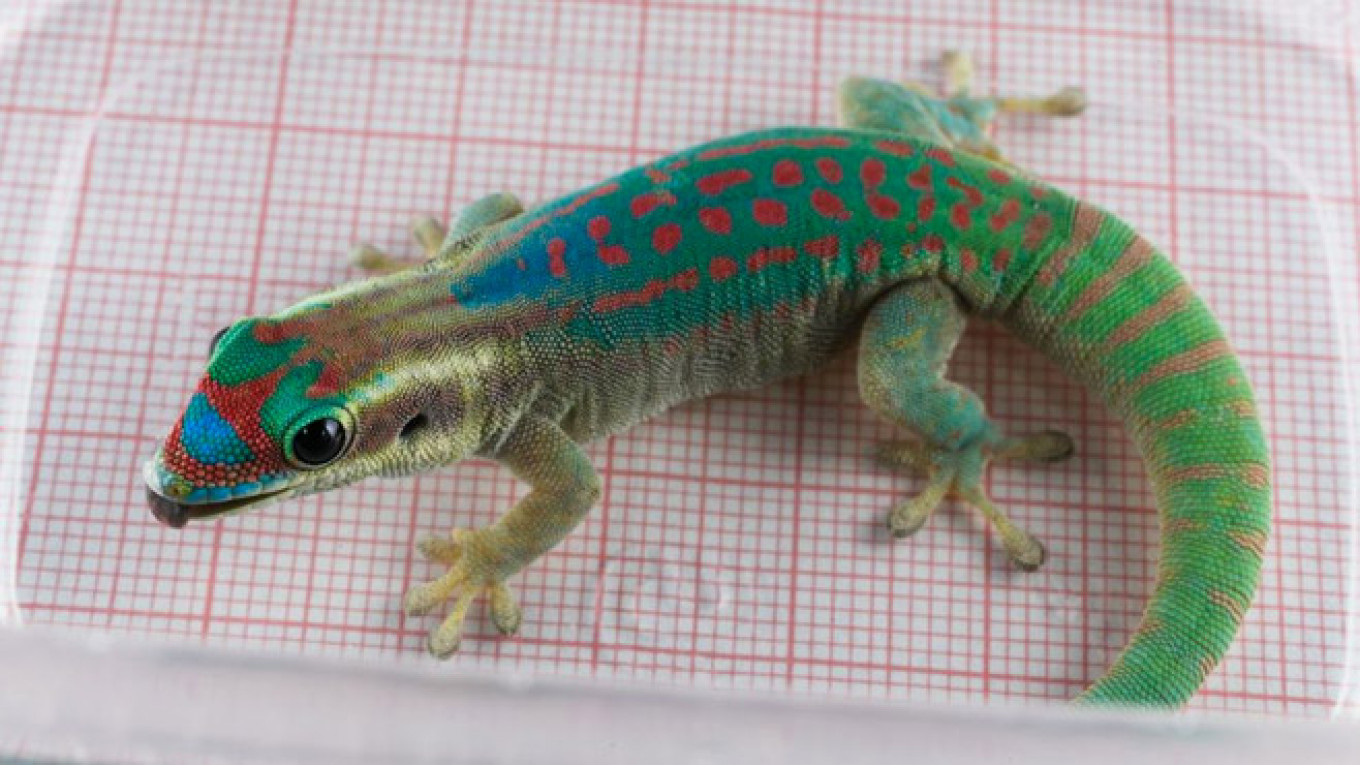Every last one of Russia's famed reptilian cosmonauts, known affectionately as the "sex geckos" owing to the carnal nature of their space voyage, has died, the Federal Space Agency revealed Monday.
The geckos had been on a two-month mission launched to facilitate research on the effects of zero-gravity on reproductive systems.
Last week, Roscosmos announced abruptly that the mission had reached completion earlier than anticipated — after a mere 44 days.
The satellite landed in Orenburg on Monday afternoon amid widespread speculation on the crew of tiny cosmonauts' survival prospects. Upon cracking open the hatch, rescue teams discovered a tragic scene.
"All the geckos, unfortunately, died," the statement said, adding that the exact date, time and cause of death will be determined by specialists in Moscow, the Federal Space Agency said in a joint news release with the Russian Academy of Sciences' Institute for Medical-Biological Problems on Monday.
In happier news, the gecko's fellow space-travelers — a team of flies — survived the flight and reproduced successfully, the statement said.
The geckos' mission was daring, fraught with risk, and no one was certain they would ever make it home.
After launching aboard their Foton-M4 satellite from the Baikonur Cosmodrome in southern Kazakhstan on July 19, Russia's mission control center outside Moscow reported that it had lost all communications with the satellite.
Although the satellite was still intact, Roscosmos was unable to issue controls to the satellite. Fortunately, on July 26, it was reported that control was reestablished over the geckos' spacecraft and the mission moved forward as planned.
Still, no one was quite sure what had become of the geckos.
The Foton satellite was not equipped to transmit live feeds back to mission control. Were the geckos having sex? Or were they already dead? These lingering questions will only now be answered, as Russian scientists will likely pick apart the 44 days of footage to discern the exact cause of the lizards' demise.
Contact the author at m.bodner@imedia.ru
A Message from The Moscow Times:
Dear readers,
We are facing unprecedented challenges. Russia's Prosecutor General's Office has designated The Moscow Times as an "undesirable" organization, criminalizing our work and putting our staff at risk of prosecution. This follows our earlier unjust labeling as a "foreign agent."
These actions are direct attempts to silence independent journalism in Russia. The authorities claim our work "discredits the decisions of the Russian leadership." We see things differently: we strive to provide accurate, unbiased reporting on Russia.
We, the journalists of The Moscow Times, refuse to be silenced. But to continue our work, we need your help.
Your support, no matter how small, makes a world of difference. If you can, please support us monthly starting from just $2. It's quick to set up, and every contribution makes a significant impact.
By supporting The Moscow Times, you're defending open, independent journalism in the face of repression. Thank you for standing with us.
Remind me later.


